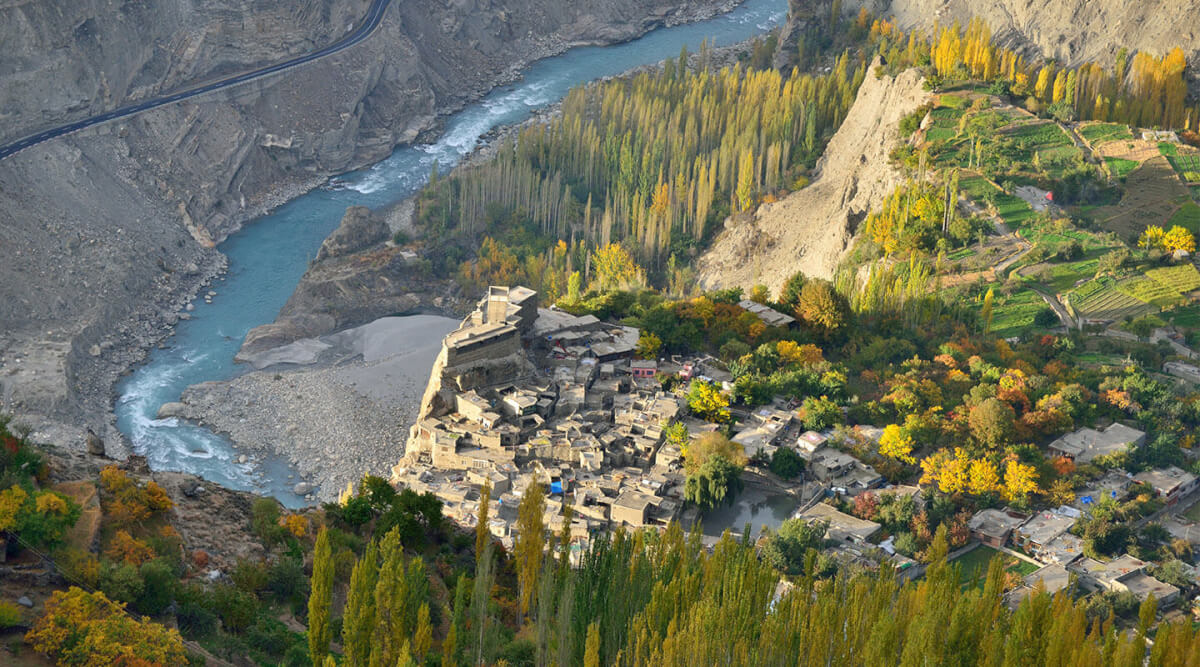Cost of living in Pakistan: Your guide
As Pakistani cities quickly evolve into some of the most cosmopolitan destinations in the world, it’s no surprise that more and more expats are moving to the...

With nearly 1.2 million British Pakistani people living in the UK and the strong cultural and historical link between the two countries, it is no surprise that Pakistan is a popular destination for British citizens wanting to live and work abroad. It is the sixth most populous country in the world, and a fascinating mix of traditional lifestyles and modern city living.
British passport holders will need a visa before travelling to Pakistan, and the passport must have six months validity on it at the time of the visa application. In order to work in Pakistan you must have a work visa, which can take up to three months to process. You will need a job offer letter from an employer in Pakistan as well as other paperwork. You can get more information on the various visas and what is required to apply for them from the Pakistan High Commission website. Obviously these restrictions don’t apply if you hold dual British and Pakistani nationality.
Pakistan has been ranked as the third cheapest country in the world in which to live (behind India and Nepal). The cheapest cities within Pakistan, according to the same survey, are Rawalpindi, Rupo Chak, Karachi, Lahore and Islamabad. For some detailed figures, take a look at the number-crunching website Numbeo which gives detailed breakdowns of what you can expect to pay for transport, accommodation and everyday items. Needless to say it is incredibly cheap compared to the UK - especially if you have an expat salary.
Pakistan has a huge range of banking institutions from the State Bank of Pakistan to government-owned banks and commercial banks. Expats might be interested in opening an account with Deutsche Bank, Standard Chartered or Citibank, which offer services to international customers. In order to save money on transfer fees between your local account in the UK and your in Pakistan, register with Wise and save on bank charges.
Networking and word of mouth references are the cornerstones of job-hunting in Pakistan. Make the most of any professional networks that exist in your area. Proficiency in Urdu is also useful, even in English-speaking offices. Multi-national companies that employ large numbers of expats include Allied Bank, GlaxoSmithKline, IBM, Procter & Gamble, Siemens, Shell and Unilever. Teachers are also in high demand throughout the country, with literacy rates in Pakistan at a little under 50%. Living on an expat salary in Pakistan will allow you to enjoy excellent standard of living. Culturally, the working week is long, averaging around 48 hours, and you are likely to have only around two weeks off as paid leave. There are however 13 festival days a year to sweeten this a little.
When looking for somewhere to either buy or rent, engage the services of a reputable agent or broker - especially if you do not speak Urdu. There is a huge range of accommodation available for expats coming with money from the UK.
A popular option with expats moving to Pakistan is to enrol their children in one of the international schools available. There are various British and American schools in the major cities such as the International School of Islamabad and the American International School in Lahore.
Pakistan’s Ministry of Health was abolished in 2011, meaning that 80% of all outpatient visits are now done privately, and any expat would be wise to take out private healthcare insurance. Healthcare is adequate in the large cities, but can be extremely patchy in rural areas. Emergency response is bad, even in cities, with limited numbers of ambulances in the hospitals. Having adequate access to decent healthcare is extremely important. Malaria is rife in rural areas, and polio and tuberculosis are still endemic, although all of these are far less likely to touch the mostly urban lifestyles of British expats than Pakistani nationals in rural areas.
Before moving abroad, take a look at our handy time-sensitive checklist to remind yourself of everything you need to do to get organised.
*Please see terms of use and product availability for your region or visit Wise fees and pricing for the most up to date pricing and fee information.
This publication is provided for general information purposes and does not constitute legal, tax or other professional advice from Wise Payments Limited or its subsidiaries and its affiliates, and it is not intended as a substitute for obtaining advice from a financial advisor or any other professional.
We make no representations, warranties or guarantees, whether expressed or implied, that the content in the publication is accurate, complete or up to date.

As Pakistani cities quickly evolve into some of the most cosmopolitan destinations in the world, it’s no surprise that more and more expats are moving to the...

One important decision, if you’re moving to Pakistan with family, is how to get the best possible education for your children. The Pakistani education system...